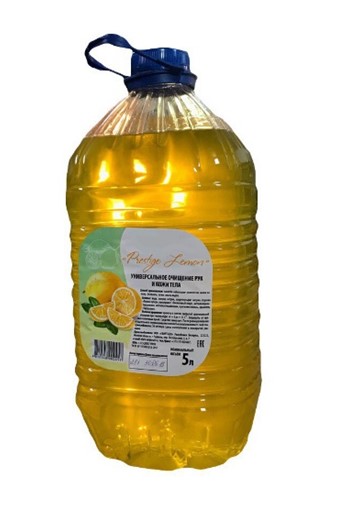In poultry farming it is proposed to introduce a gradation of biosecurity

In poultry farming, it is proposed to introduce a gradation of biosecurity; business is afraid of risks for production costs, exports and domestic trade. This was stated in an appeal sent to the ministry last week.
Industry unions consider it inappropriate to introduce compartmentalization in the Russian poultry industry ( biosafety requirements against the penetration of animal pathogens) in a version similar to that in force for the pig farming industry. They propose that the Ministry of Agriculture review these approaches in accordance with the Terrestrial Animal HEALTH Code of the World Organization for Animal Health (OIE Code), and envisage the entry into force of changes in legislation no earlier than 2030. This was stated in an appeal sent to the ministry last week (the document is available to Veterinary Medicine and Life).
“The position of the unions has not changed, and we still consider it inappropriate to introduce compartmentalization in poultry farming in the image and likeness of what is currently in effect in Russian pig farming and does not comply with OIE recommendations,” says the letter addressed to the Secretary of State - Deputy Minister of Agriculture of the Russian Federation Maxim Uvaidov.
The appeal was signed by the heads of the National Poultry Union, the National MEAT Association, the National Association of Turkey Producers and the Russian Poultry Union.
In Russian legislation, a compartment refers to the zoosanitary status of an enterprise; Such levels (there are four of them) are defined for the pig farming industry. The fourth level is the highest: enterprises to which it is assigned can sell products without restrictions, even in the event of disease outbreaks in the region where the pig farm is located.
The Ministry of Agriculture developed draft veterinary rules for determining zoosanitary status for poultry enterprises: it was proposed to determine it for a wide range of objects (land plots, buildings and premises intended for keeping and slaughtering poultry, for processing and storing poultry products). A total of four levels of compartments are defined. The rules were expected to come into force on March 1, 2025.
Industry associations, in their appeal to the Ministry of Agriculture in early February, citing the experience of compartmentalization in pig farming, indicated that the approaches current in RUSSIA differ from the recommendations of the OIE Code on fundamental points: in the code, a compartment is defined not by levels of biosecurity, but by specific diseases, in relation to which surveillance, biological safety and control measures are taken. In addition, there are concerns that if divisions of retail chains receive high levels of animal health status, suppliers will be forced to receive a compartment no lower, and thus domestic trade in poultry products may become difficult.
UNJUSTIFIED COSTS
The new appeal concerns an adjusted version of the draft veterinary rules, which, according to the authors, does not provide an objective assessment of the level of biological protection of each compartment. In addition, significant costs will be required - many poultry farms do not meet the requirements specified in the draft order of the ministry, the letter notes, and this means “significant investments that can reach several billion rubles for large poultry farms.” According to the authors of the appeal, almost no such difficulties arose for pig farms, since many of them were put into operation immediately in accordance with the requirements for compartmentalization.
Another risk is a drop in production volumes. If capital investment to meet high compartment levels takes precedence, then funding for projects related to modernization of production and increase in output may be reduced.
YOU JUST NEED TO FOLLOW THE RULES
The appeal emphasizes that the absence of barriers to the entry of infections cannot be compensated by the approval of veterinary rules for compartmentalization. According to producers, in essence the project repeats the already existing veterinary rules for industrial poultry enterprises.
Moreover, since a number of poultry production has been operating in difficult financial and economic conditions for a long time, unions note, it is difficult to expect that the necessary requirements will be met in a short time. In their opinion, it is enough for the regional authorities to monitor the implementation of veterinary rules by enterprises and the elimination of identified violations - this will ensure the biosecurity of farms much faster.
“The compartment system is being implemented to combat avian influenza, but at the same time, in accordance with the veterinary law, it is a voluntary procedure. But, firstly, the fight against animal diseases should not be voluntary, and secondly, the protection of the enterprise is already prescribed in the veterinary rules for keeping birds at industrial facilities: if they are followed, the problem with the incidence of diseases in the livestock will be solved,” explained "ViZh" HEAD of the veterinary department of the National Meat Association Evgeniy Lapinsky.
Protection against the introduction of pathogens of infectious diseases must be in effect at every enterprise, the letter says, therefore the compartment must be complete, “and not characterize the protection of the enterprise at 3/4 or 1/4 of what is necessary.” The currently proposed gradation according to the degree of biosecurity will create difficulties in logistics and trade in the domestic market, at the same time, to ensure exports, full compliance with international recommendations is important, the appeal adds.
“Poultry farmers would welcome compartmentalization if it complied with the recommendations of the OIE Code, facilitating both international and domestic trade in poultry products. Therefore, first of all, it is necessary to bring the law on veterinary medicine in terms of compartmentalization into line with the recommendations of the OIE Code and, in accordance with its requirements, to develop compartmentalization for diseases, but without different levels,” said Evgeniy Lapinsky.
WHAT THE DEPARTMENTS SAY
“Initially, the text of the draft rules for compartmentalization in poultry farming was prepared by the Russian Ministry of Agriculture back in June 2023. In the period from July to December 2023, the draft rules were worked out with ROSSELKHOZNADZOR,” the press service of the ministry reported.
At the end of March, the press service of Rosselkhoznadzor reported that the agency had sent proposals to the Russian Ministry of Agriculture, where the feasibility of their implementation was being discussed with business. The goals are the same as in pig farming - maintaining biosafety and the possibility of shipments when the area is unfavorable for one or another poultry disease.
“Currently, the draft rules for compartmentalization in poultry farming are being developed by the Russian Ministry of Agriculture together with representatives of industry associations (unions), and therefore it is premature to talk about the final criteria for compartmentalization,” the press service of the Ministry of Agriculture reported on Wednesday, April 17.
IN SEARCH OF A COMPROMISE
Essentially, we are talking about the harmonization of mutual requirements, says Konstantin Korneev, executive DIRECTOR of the consulting company Rincon Management: the regulator needs to ensure unification of requirements for veterinary approaches and biosecurity measures at different types of enterprises, and sales are important for business, including to international markets, where importers dictate terms.
In his opinion, compartments can introduce additional regulation on companies’ access to foreign markets; In addition, the introduction of biosafety requirements always imposes certain costs on the manufacturer, and their magnitude depends on the degree of readiness for this process.
“The industry needs such rules. But they must be developed taking into account the recommendations of the World Organization for Animal Health on the organization of compartments, which can only be created for two diseases that affect international trade - avian influenza and Newcastle disease ,” the vice president for regional development told ViZh and interaction with government bodies of the Damate group of companies Andrey Grigorashchenko.
In his opinion, the implementation of new rules will require additional financial investments in production and control systems, so it would be optimal to find a version of the system that does not require significant investments and complies with international rules. But if this is done by analogy with pig farming, then there will be an increase in the cost of the final product and a complication of trade processes within the country, the publication’s interlocutor added.
Read together with it:
- Reuters has learned of India's new demand for companies over Russian oil.The origin of oil supplies is usually reflected in companies' monthly reports, but now they are required to report supplies from RUSSIA on a weekly basis.REUTERS believes the new demands are linked to India's plans for a deal with the US. The Indian Oil Ministry's Petroleum Planning and Analysis Cell (PPAC) has begun requesting information from refineries on crude imports from Russia and the Unite...
- От самолетов до лекарств из плазмы крови. Пархомчик об амбициозных проектах Брестской областиПетр Пархомчик Председатель Брестского облисполкома Брестская область, продвигая себя под брендом "#1регион", стремится к лидерству во многих сферах. Производство уникальных лекарств, сборка самолетов и речных судов - лишь некоторые амбициозные проекты, над которыми уже работают брестчане. Председатель Брестского облисполкома Петр Пархомчик в интервью корреспонденту БЕЛТА рассказал о развитии экон...
- New video on our channel: Sheep Business. How to achieve a 300g daily gain in an open field? Alakol Agro LLC, KazakhstanThe ram fattening business . Sheep breeding in Kazakhstan. Weighing Edilbaev lambs and crossbreds of foreign MEAT breeds at a feedlot. How does balanced feed affect slaughter yield? Is there a wool market in Kazakhstan? PIONERPRODUKT.by is back at the Alakol Agro LLC feedlot in Kazakhstan . Today, we'll demonstrate how an Australian drafter operates in the new facility, discuss post-weaning weight...
- What problems has Russian biathlon faced due to isolation?Russian biathlon is experiencing difficult times due to international isolation. The number of sponsors has declined, biathlon has become less accessible to amateurs, and professional results are declining. For more details, see RBC Sport.On January 3 and 4, the Race of Champions will take place in Ryazan—the Russian equivalent of the biathlon Christmas Race in Gelsenkirchen. Its program includes ...
- A major industry reboot: nine new transport corridors will open in the Mogilev region in 2025.30 декабря, Горецкий район. Девять современных молочно-товарных комплексов появились в хозяйствах Могилевской области в текущем году. Об этом во время открытия МТК на 1,2 тыс. голов в СЗАО "Горы" в Горецком районе рассказал председатель Могилевского облисполкома Анатолий Исаченко, передает корреспондент БЕЛТА."Идет перезагрузка отрасли: мы строим новые молочно-товарные комплексы, реконструируем и ...
- Plant growers in the Chelyabinsk region have increased productionThe results of the crop production sector in 2025 and the objectives for the coming year were discussed at an extended meeting of the Board and Public Council of the Ministry of Agriculture of the Chelyabinsk Region. Heads of rural municipal districts of the Chelyabinsk Region participated in the meeting via videoconference. Opening the meeting, Deputy Governor of the Chelyabinsk Region and Minist...






























































